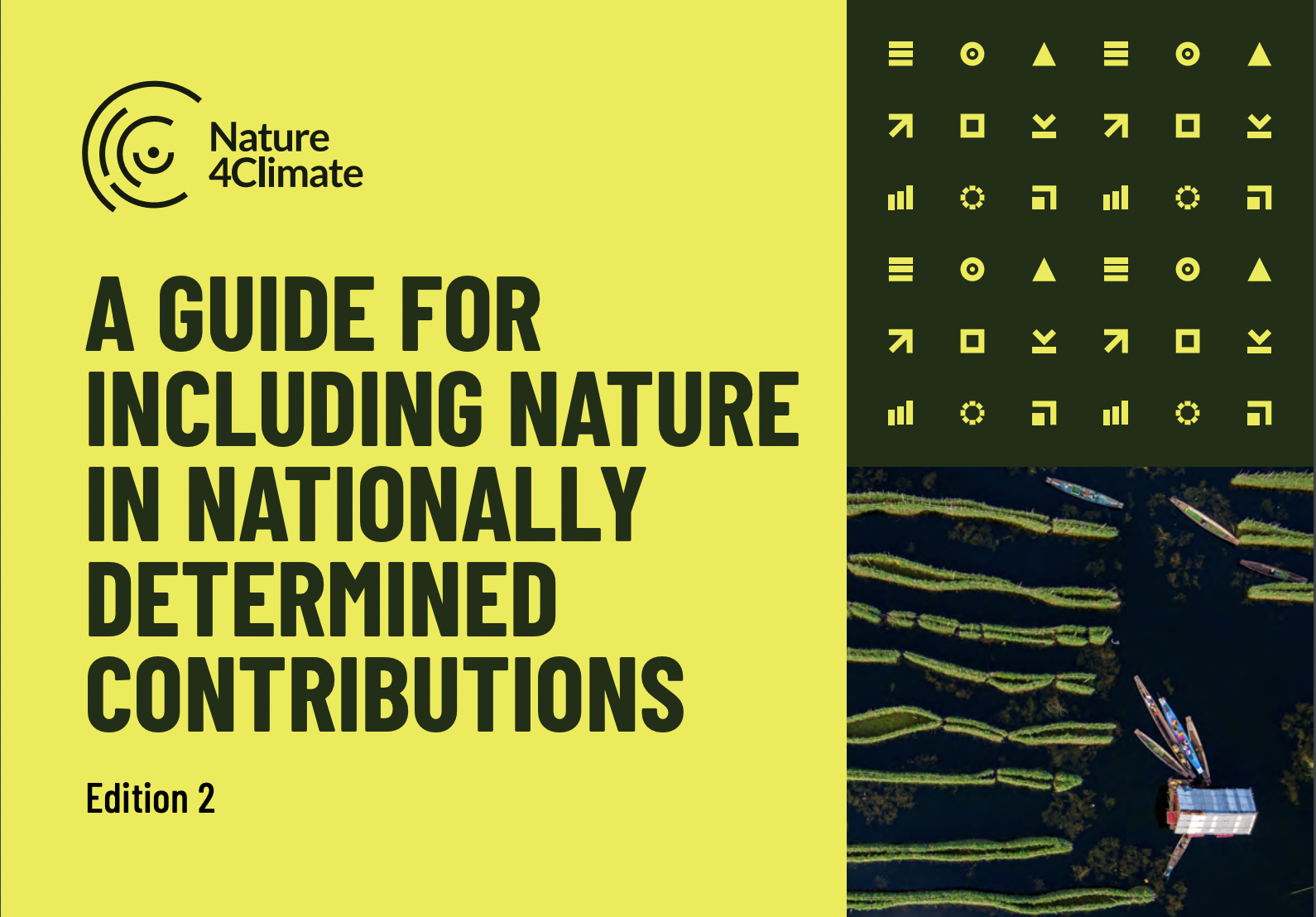
UPDATED: November 20, 2024
The third five-year cycle of Nationally Determined Contributions (NDCs), due in 2025, represents a crucial opportunity to scale up global emissions reductions and strengthen the resilience of communities and ecosystems by integrating environmental integrity considerations and Nature-based Solutions (NbS) more prominently into NDCs. The second edition of the Nature4Climate coalition’s Guide for Including Nature in NDCs has been developed to assist national policymakers and technical experts involved in the revision and implementation of 2025 NDCs.
Launched in support of the discussions at COP 29, the guidance includes 15 recommendations to effectively advance in this direction, along with additional resources and case studies related to each of these:
Read the report
You can also read the first edition here.
Read more
Related articles for further reading
Preparing to Enhance the Inclusion of Nature in 2025 NDCs
- Develop whole-of-government processes and frameworks to mainstream inclusive, nature-based climate action across all sectors, maximizing synergies between climate, biodiversity, and human well-being from the outset of the NDC enhancement process.
- Develop a gender-responsive, transparent, whole-of-society approach for the NDC enhancement process to ensure it incorporates local knowledge and fosters common understanding, buy-in, and commitment to implementation.
- Take stock of NDC implementation progress and assess relevant changes in international and national priorities, circumstances, and regulatory instruments.
- Identify the most suitable entry points for enhancing the inclusion of nature in NDC targets.
- Gather and refine information to inform the enhancement of nature-related NDC targets, prioritizing the best-available science alongside indigenous, traditional, and local knowledge.
Strengthening the Inclusion of Nature in NDC Targets for Mitigation, Adaptation, and Loss & Damage
- Elevate the NDC economy-wide greenhouse gas (GHG) target to the highest achievable ambition, in line with Article 4.3 of the Paris Agreement, maximizing ambition through NbS.
- Develop or strengthen sectoral GHG and non-GHG targets, policies, and/or measures to incentivize more ambitious mitigation in Agriculture, Forestry and Other Land Uses (AFOLU), including in wetlands and coastal areas.
- Integrate or enhance adaptation targets to maximize the potential of NbS and ecosystem-based approaches in reducing climate risks and enhancing resilience across all sectors and ecosystems, aligning with, and contributing to the UAE Framework for Global Climate Resilience to achieve the Global Goal on Adaptation.
- Integrate nature as an essential component in addressing loss and damage from climate impacts, while recognizing and documenting nature’s vulnerability to such impacts.
- Integrate nature-based solutions, ecosystem-based adaptation, and nature-positive approaches into mitigation and adaptation targets related to non-AFOLU sectors.
Cross-cutting Considerations
- Maximize synergies between NDC targets and related national environmental, development, and health objectives to amplify win-win outcomes for climate, biodiversity, and human well-being.
- Enhance consistency and coherence between adaptation and mitigation targets.
- Apply just, equitable, and rights-based approaches to ensure inclusivity across NDC targets.
Implementation and Financing
- Clearly communicate the means of implementation and support needed for effective NbS target achievement across mitigation, adaptation, and loss and damage.
- Establish or strengthen structures and policies necessary for the effective implementation of NbS targets within the NDC.
